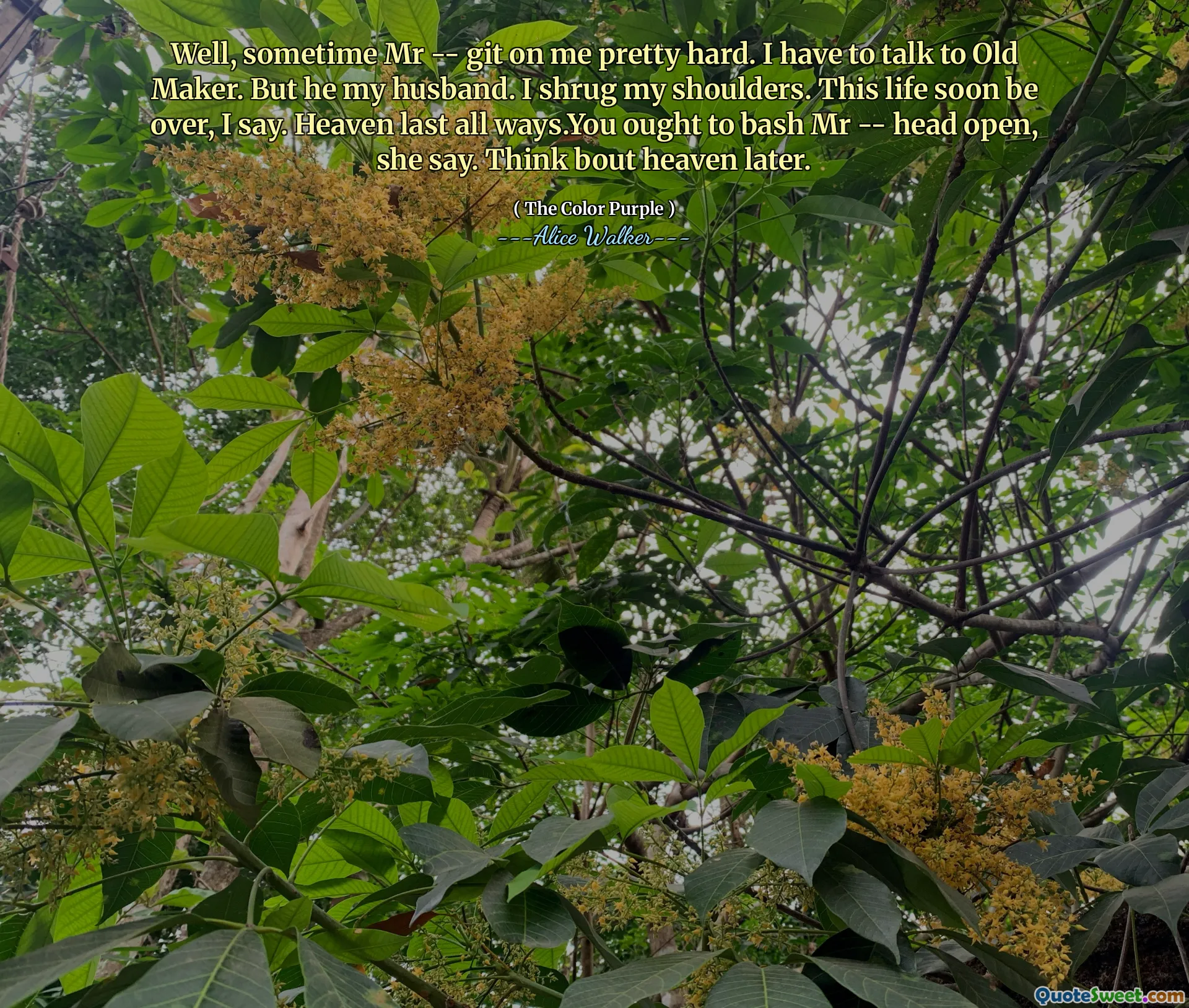
Well, sometime Mr -- git on me pretty hard. I have to talk to Old Maker. But he my husband. I shrug my shoulders. This life soon be over, I say. Heaven last all ways.You ought to bash Mr -- head open, she say. Think bout heaven later.
In Alice Walker's "The Color Purple," a character reflects on her struggles within an unsatisfactory marriage. She conveys feelings of resignation and acceptance, suggesting that despite her hardships, she believes her suffering will soon end. Her mention of talking to the "Old Maker" highlights her spiritual beliefs and desire for hope. She acknowledges the possibility of a better existence after life ends, indicating her reliance on faith to navigate her difficult circumstances.
Another character suggests a more aggressive approach to dealing with their troubles, advocating for direct action against their oppressor, Mr. --. This implies a tension between passive acceptance of hardship and a more rebellious attitude towards seeking justice. The contrasting perspectives emphasize the characters' diverse coping mechanisms, revealing the complexity of their inner lives as they navigate the challenges they face.





